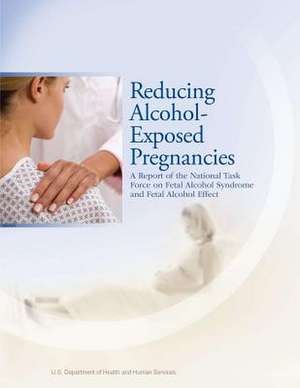Reducing Alcohol-Exposed Pregnancies
Autor U. S. Department of Heal Human Services, Ph. D. Kristen L. Barry, MD Ph. D. MPH Caetanoen Limba Engleză Paperback
Preț: 89.15 lei
Preț vechi: 93.84 lei
-5% Nou
Puncte Express: 134
Preț estimativ în valută:
17.06€ • 17.81$ • 14.12£
17.06€ • 17.81$ • 14.12£
Carte disponibilă
Livrare economică 15-29 martie
Preluare comenzi: 021 569.72.76
Specificații
ISBN-13: 9781478217428
ISBN-10: 1478217421
Pagini: 36
Dimensiuni: 216 x 279 x 2 mm
Greutate: 0.11 kg
Editura: CREATESPACE
ISBN-10: 1478217421
Pagini: 36
Dimensiuni: 216 x 279 x 2 mm
Greutate: 0.11 kg
Editura: CREATESPACE
